The ceasefire between Israel and Hezbollah is expected to be a "glimmer of hope from the abyss" in the regional conflict after months of escalation. However, Israel is still in the lead in everything and there is still much to do to realize the commitments of both sides.
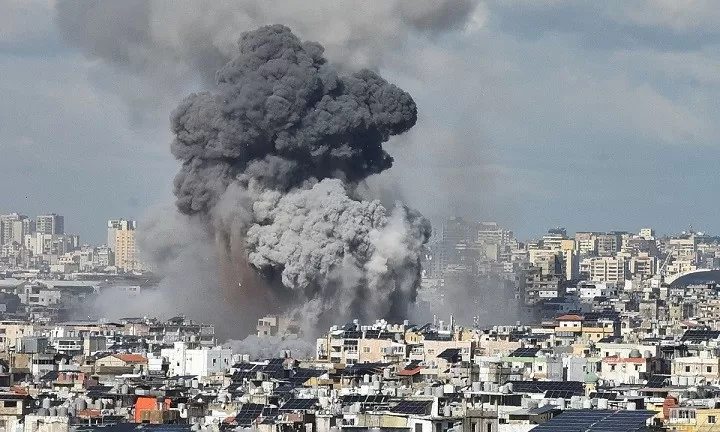 |
| The Israel-Hezbollah ceasefire agreement came into effect on November 27. (Source: AP) |
US President Joe Biden said a ceasefire between Israel and Lebanon's Hezbollah movement went into effect on November 27 after both sides accepted a deal brokered by the US and France.
Mr Biden said the deal – which paves the way for an end to the Gaza conflict that has killed thousands since it erupted last year – was designed to permanently end hostilities.
Main content of the agreement
The details of the agreement have not been released, but according to a senior Lebanese political source with direct knowledge of the matter, the agreement brokered by US Special Envoy Amos Hochstein is five pages long and includes 13 clauses. Here is a Reuters summary of the main terms of the agreement:
Stop Hostile Actions: Mr. Biden announced that the ceasefire would begin at 4 a.m. local time on November 27. A senior Lebanese source said Israel was expected to “halt all military operations against Lebanese territory, including civilian and military targets, on land, at sea and in the air.” The source said all armed groups in Lebanon — meaning Hezbollah and its allies — would halt operations against Israel.
Israel pulls out: Two Israeli officials said the Israeli army will withdraw from southern Lebanon within 60 days. Biden said the troops will withdraw gradually and civilians on both sides can return home. Lebanese officials previously said they had pushed for the Israeli army to withdraw as quickly as possible during the ceasefire. Lebanon now expects the Israeli army to withdraw within the first month.
Hezbollah withdraws north, Lebanese army deploys: Hezbollah will leave its positions in southern Lebanon and move north of the Litani River, about 30km north of the Israeli border. According to a senior Lebanese source, the withdrawal will not be made public and the group's military facilities "will be dismantled". Meanwhile, the Lebanese army will deploy about 5,000 soldiers south of the Litani River, including 33 posts along the border with Israel.
Monitoring mechanism: Lebanese parliament deputy speaker Elias Bou Saab told Reuters that one of the sticking points in the final days of ceasefire negotiations was how to monitor the situation. He said the existing tripartite mechanism between the United Nations peacekeeping force in southern Lebanon (UNIFIL), the Lebanese army and the Israeli army would be expanded to include the United States and France, with the United States taking the lead.
Unilateral Israeli strikes: Israeli officials have said the Israeli military will continue to attack Hezbollah if it detects threats to its security, including the transfer of weapons and military equipment to Hezbollah. An Israeli official said Israel will use drones to monitor ground operations in Lebanon. But Lebanese officials said that was not part of the agreement they agreed to and that Lebanon would protest any violation of its sovereignty.
Hezbollah has been significantly weakened.
Israeli Prime Minister Benjamin Netanyahu said the ceasefire would allow Israel to focus on the Iranian threat, replenish depleted arms supplies and give its military a break, while isolating Hamas. “We will coordinate fully with the United States to maintain our freedom of military action,” he added. “If Hezbollah violates the agreement or tries to rearm, we will strike decisively.”
According to Mr. Netanyahu, Hezbollah is significantly weaker than when the conflict began.
"We have set this force back decades, eliminated its senior leaders, destroyed most of its missiles and rockets, neutralized thousands of fighters and wiped out much of its infrastructure," the Israeli Prime Minister informed.
A recent poll conducted by Israel's Channel 12 TV found that 37% of Israelis support a ceasefire, compared to 32% who oppose it.
Opponents of the deal in Israel include opposition leaders and mayors of towns near Israel's border with Lebanon, who want a buffer zone on the Lebanese side of the border.
"In order to withdraw from Lebanon, we must have our own security perimeter," said Israeli Security Minister Itamar Ben-Gvir, a right-wing member of Prime Minister Netanyahu's government.
Despite the diplomatic breakthrough, hostilities continued as Israel significantly stepped up its air campaign in Beirut and other parts of Lebanon. Iran-backed Hezbollah also continued to fire rockets at Israel. The Israeli military said its air force intercepted three rockets fired from Lebanese territory on the evening of November 26, triggering warning sirens in some 115 settlements.
Good sign, message to Hamas
Immediately after the ceasefire took effect, United Nations (UN) Secretary-General Antonio Guterres on November 27 assessed that this could be the "first ray of hope" in the conflict in the region after months of escalation.
“I received a good sign, I would say it was the first glimmer of hope for peace that I received amid the darkness of the past few months. It was a ceasefire agreement regarding Lebanon and it was a very important moment, especially for civilians, who are paying a very high price for the fact that this conflict is not only prolonged but is becoming more and more worrying,” said Secretary-General Guterres.
UN Special Coordinator for Lebanon Jeanine Hennis-Plasschaert welcomed the ceasefire, praising the parties to the agreement for “seizing the opportunity to close this devastating chapter”. “Now is the time to implement, through concrete actions, to consolidate today’s achievements,” she said.
In addition, US Secretary of State Antony Blinken, after a meeting with the foreign ministers of the world's leading industrialized countries (G7), also expressed the US government's expectation that this agreement would open up a similar situation in Gaza.
“The agreement will make a huge difference in saving lives and livelihoods in Lebanon and Israel, and it will create the conditions that allow people to return safely to their homes in northern Israel and southern Lebanon. I also believe that by reducing tensions in the region, it can also help us end the conflict in Gaza. Hamas, in particular, will know that it cannot count on other fronts opening up in the conflict,” Mr. Blinken stressed.
Hours after the ceasefire came into effect, Türkiye said it was ready to provide necessary assistance to help Lebanon “establish stability in the country.” The United Arab Emirates (UAE) also welcomed the ceasefire agreement and expressed hope that it would lead to a permanent cessation of hostilities.
There are still doubts
Some analysts remain cautious about the implementation of the agreement. Cedomir Nestorovic, professor of geopolitics at the Asia-Pacific campus of ESSEC Business School, told reporters that both Israel and Hezbollah are “eager to finalize the deal” before US President-elect Donald Trump takes office on January 20, 2025. Nestorovic also noted the lack of an international commission or international monitors to monitor the ceasefire.
“I hope that we can expect the ceasefire to hold. I believe that both sides have a great interest in maintaining the ceasefire at this time. Maybe in the future, the two sides will establish a special committee to monitor the ceasefire,” Nestorovic said.
"I absolutely do not believe that this ceasefire can last 60 days, let alone become permanent. I think there are many other concerns, motivations and commitments that need to be managed and implemented well for the ceasefire to become permanent," commented Mr. Simon Frankel Pratt, lecturer in Political Science, University of Melbourne (Australia).
Pratt also pointed out that the conflict between Israel and Hezbollah would not resume after 60 days if the more than 60,000 residents of northern Israel who were displaced when the fighting broke out began returning to their homes near the Lebanese border. “As long as they are displaced, it shows that the security situation remains unstable,” Pratt said.
According to analysts, a similar agreement in Gaza would be “much more difficult” than the Israel-Hezbollah ceasefire, especially if countries continue to withdraw from the negotiation process.
Earlier this month, Qatar, a key mediator, announced that it would suspend its role until Israel and Hamas showed “readiness and seriousness.” Negotiations have repeatedly failed since a temporary ceasefire collapsed after a week in November 2023.
Source: https://baoquocte.vn/thuan-ngung-ban-giua-israel-hezbollah-mot-ben-van-nam-dang-chuoi-hamas-nga-ngua-nhan-ra-don-giang-hoa-binh-lieu-con-xa-295445.html



![[Photo] General Secretary To Lam meets and expresses gratitude to Vietnam's Belarusian friends](https://vphoto.vietnam.vn/thumb/1200x675/vietnam/resource/IMAGE/2025/5/11/c515ee2054c54a87aa8a7cb520f2fa6e)
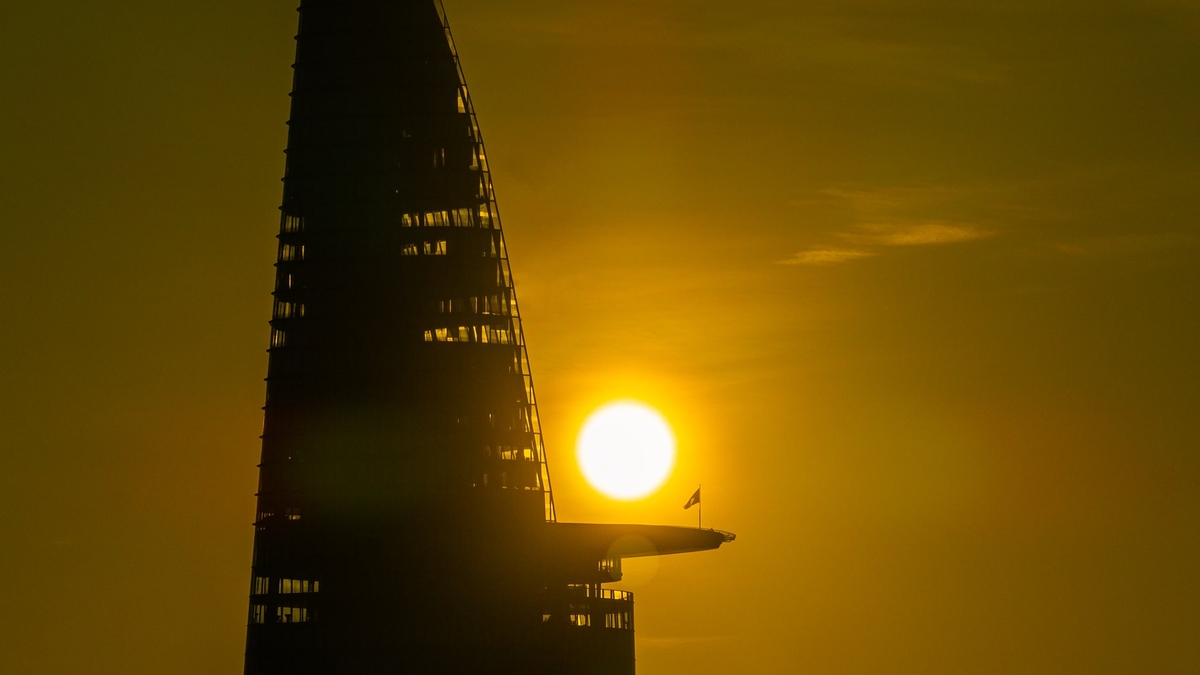



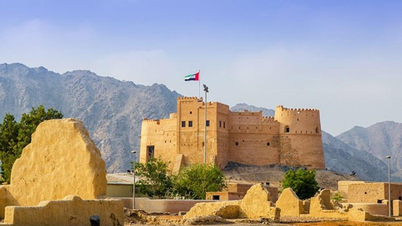





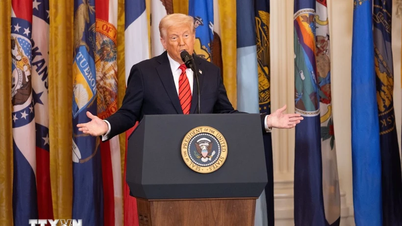






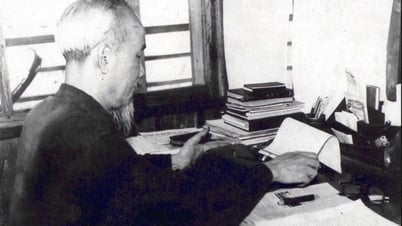










![[Photo] General Secretary To Lam arrives in Minsk, begins state visit to Belarus](https://vphoto.vietnam.vn/thumb/1200x675/vietnam/resource/IMAGE/2025/5/11/76602f587468437f8b5b7104495f444d)
![[Photo] General Secretary To Lam concludes visit to Russia, departs for Belarus](https://vphoto.vietnam.vn/thumb/1200x675/vietnam/resource/IMAGE/2025/5/11/0acf1081a95e4b1d9886c67fdafd95ed)

































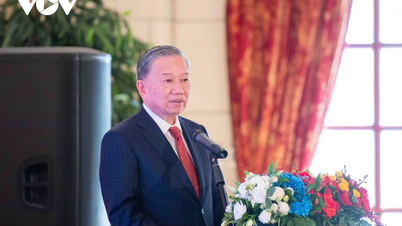


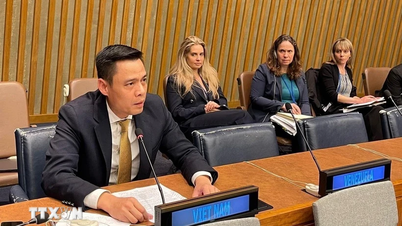






























Comment (0)